Qld youth crime crisis: Police too fearful to patrol the streets
Frontline officers are calling in sick and refusing to go out in marked cars for fear of being targeted by young criminals who know the system will protect them.
Police & Courts
Don't miss out on the headlines from Police & Courts. Followed categories will be added to My News.
Frontline police officers are calling in sick, refusing to go out in marked police cars and don’t want to walk the streets at night out of fear of being targeted by young criminals.
Officers across the state have opened up about the ongoing youth crime crisis engulfing Queensland and their frustrations with the revolving door of Children’s Court, which they claim is doing little to ease the crisis.
Fed-up police spoke out after respected Gold Coast district duty officer Arron Ottaway was stood down for allegedly authorising officers to ram a stolen car that police say was driven by armed teen offenders on a crime rampage.
In a separate incident this week, cops fired on what they thought was a stolen car being driven by four teens in Brisbane after it allegedly rammed an unmarked police car and tried to run down an officer.
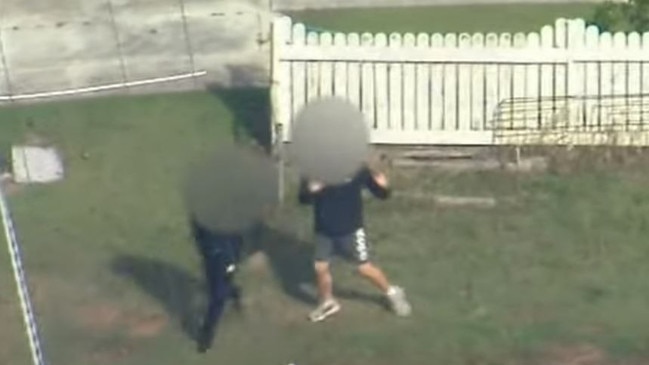
It followed the fatal stabbing of 70-year-old Vyleen White in front of her six-year-old granddaughter at an Ipswich shopping centre, allegedly at the hands of a 16-year-old carjacker.
While not commenting on these specific matters, police said they feared more carnage from young criminals who may run riot without fear, as the cops could not chase them.
A senior police officer told The Courier-Mail that crews were often afraid to go to work out of fear of being rammed by a stolen car.
“Officers don’t want to be in a marked car, they don’t want to be out on the road especially at night when it’s a real concern,” they said.
“People are calling in sick, officers have been told not to walk on footpaths at night.
“You’re mad if you’re not aware of what’s happening around you.”

They said officers often felt powerless. “You know you’re going to get rammed. Stolen cars will pull up in front of you and throw things at you, and all you can do is turn on your bodycam and do nothing.”
One major South East Queensland police station is almost 20 staff down, with positions either vacant or officers away on leave.
“We can barely get a f —king car on the road,” one officer based at the station said.
“It’s not only youth crime but also DV takes up so much of our time. We’re just getting pulled in a heap of different directions.
“These kids (car thieves) aren’t stupid – they know if they hit the accelerator, we’re not going to chase them.”
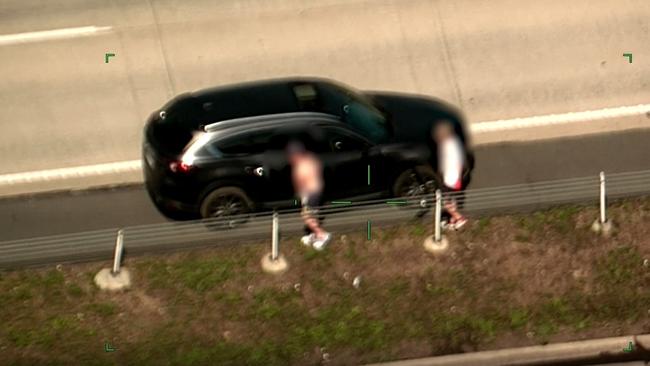
Another frustrated frontline officer said cops were being reprimanded by bosses for not stopping at red lights when pursuing stolen cars.
“That’s why these young offenders have no fear and are doing what they like,” he said.
Another officer said it was “incredibly disheartening” having to deal with repeat juvenile offenders.
“You send them to court and they get (bail) … then the cycle repeats,” he said.
“They will eventually front court on multiple matters, multiple criminal indictable offences – over 30 criminal charges. And then they’re let out again after sentencing, no time served, no retribution for victims, no convictions recorded, nothing.
“Sometimes they’ll do a youth restorative justice thing, which essentially doesn’t mean a thing and is an insult to everyone.
“Bottom line is, they’re doing these things because they can get away with it.
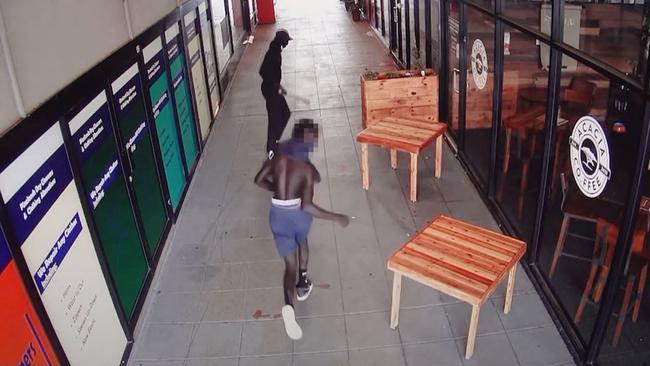
“There isn’t appropriate punishment and police are sick and tired of being the last line of defence and bashing our heads against brick walls because we are doing everything in our power and nothing gets done.”
Police Commissioner Katarina Carroll admitted youth crime was taking a toll on staff.
“Whichever way you look at what’s happened in the last few years, the unique offender numbers have been trending down but the small group has been particularly more violent,” she said. “Escalation in violence … taking vehicles, the notoriety on social media, and boxing in vehicles is one of those and it takes its toll.
“We have a great support network within the organisation to support our officers.”
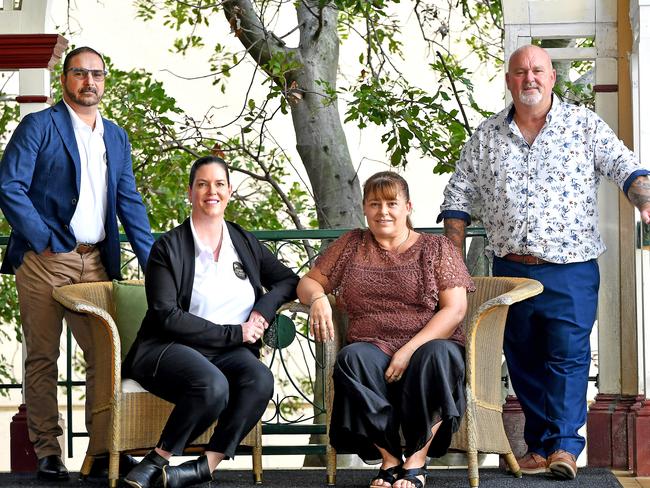
It comes as state parliament on Wednesday passed laws barring the sale of knives, gel blasters and replica guns to children in a move designed to reduce the number of young offenders carrying weapons.
The government also put forward $6m to boost knife crime prevention campaigns, with a portion of the funds to go toward education campaigns run by the Jack Beasley Foundation and the Balin Stewart Foundation.
The foundations were set up by the family of slain teens Jack Beasley and Balin Stewart, who were killed in separate incidents involving knives.
In parliament, Labor also voted down law amendments put forward by the LNP to remove the clause requiring detention be used as a last resort and open up juvenile courts to media and victims.
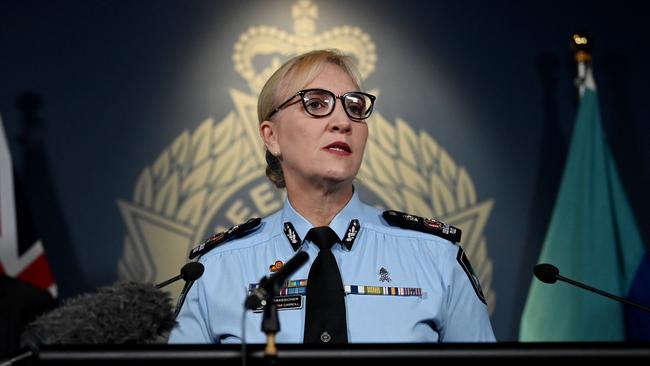
The latter came despite the government the day prior committing to open the courts to media and victims’ families.
Queensland Police Union president Ian Leavers said police faced highly emotional situations every day which could become a burden.
“Constantly responding to complicated and violent domestic and family violence incidents alone is adding strain and tension that often lasts well past the end of shift for our first-response police,” he said.
“A recommendation from the 2022 commission of inquiry proposed rotating police into short periods of less stressful operational roles with a view to allowing officers to rebalance, revitalise and restore their empathy.
“The rubber band can be stretched only so far and police are at capacity having to fill the roles of every other government department that does not work beyond business hours, and they’re also dealing with the trauma they see each day.”




